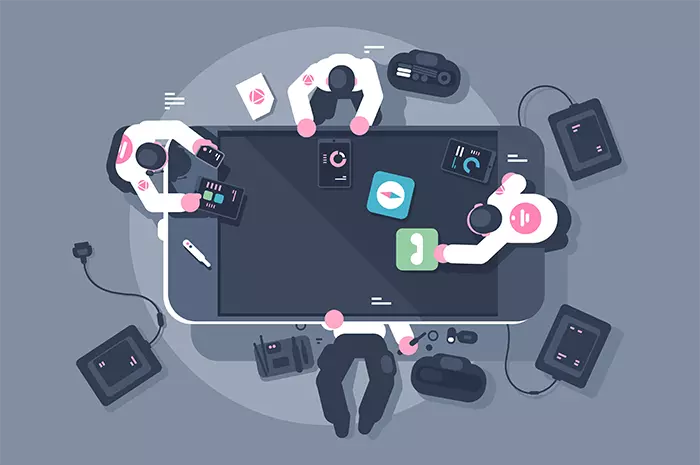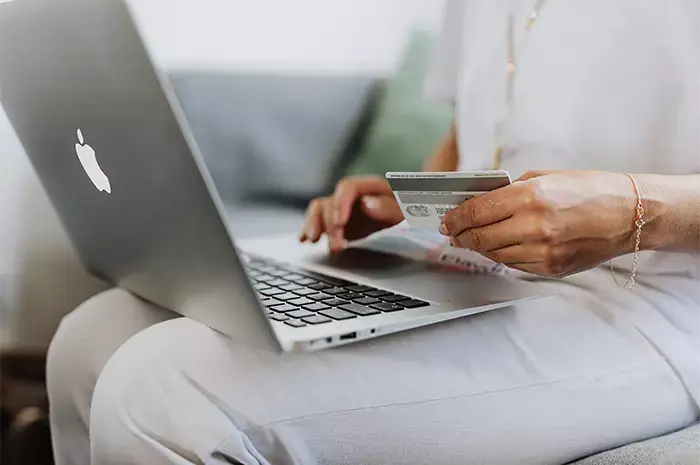Fake apps pose potentially serious security risks to unwitting users. They are among the bogeymen of the tech world – except they actually exist. And there are thousands of them.
But what exactly is a fake app?
Fake apps, as the name suggests, are apps that copy legitimate apps. This goes beyond simple plagiarism or stealing ideas. Fake apps copy the function and even look of real apps, often to the point that, if you're not looking closely enough, you will mistake them for the original app.
It's not just the user who can suffer the consequences – organizations, too, can suffer financial or reputational damage.
Why Do People Create Fake Apps?
In short: real apps are lucrative business. Criminals will exploit this by making a copy-cat app that doesn't offer any service or benefit and getting you to give your money or information to them anyway.
What Happens if You Download a Fake Applications?
When you download a fake app, many things can happen to your device, including but not limited to:
-
The fake app could contain malicious content and make your device malfunction or behave oddly.
-
It could be disguised malware, and upload your information and location without your consent. On that note, it can steal your information.
-
It could bombard your device with ads.
How to Distinguish a Fake App From a Real One
Falling victim to cyber attacks can be prevented by knowing how to differentiate a copy-cat app from a real one.
Here's how you do it
-
What's in a name?
Check the app's name and logo before you download it. Popular apps often have faux alternatives that look similar. Look out for misspellings, changes in colour, and other small differences.
-
Who developed it?
Which mobile app development company made the application you're looking at? Who are the developers? It's a good idea to check if the creators are legitimate – a quick Google search will seal the deal. Search for other apps the developer has built as well.
-
What do the reviews say?
Overwhelming negative reviews are a telltale sign of an app you shouldn't download – whether or not it's fake! If people are complaining that their devices are malfunctioning after downloading it, it could be due to malware.
On a related note, a list of solely positive reviews is somewhat suspicious as well. They could have been paid for.
-
Check the date
If demand is very high for a newly published app, it could be because the app is counterfeit. Most popular apps have to wait around on the market for a long time before people take notice. This is why the published date should say "updated on", and not any particular date.
-
Be wary of excessive discounts
Is the app promising brilliant features at a price too good to be true? That's a red flag. It may seem cynical, but some discounts are just as ridiculous as they sound. Don't be persuaded.
-
Check any screenshots
The above methods are good for determining the legitimacy of an app, but if you are still unconvinced, you can turn to the screenshots. If they are Photoshopped or use a vocabulary that the original creators would not use, you can hit the back button.
-
How professional is the description?
If you thought good, clear content is overrated, you thought wrong. Look out for misspellings or language that suggests a bot could have written it. A real developer will make the effort to ensure a concise, clear description for users.
-
How many downloads does it have?
Popular apps such as Facebook and Instagram will have millions or even billions of downloads. A knockoff will probably have a few hundred or thousand.
-
Check the permissions
Many apps will ask for access to your camera, contacts and/or location. This is fine – within reason. If an art app, for example, is needlessly asking for access to your location, it might be a sign that it is counterfeit.
Learn more about Custom Application Development Services .
What should you do if you think an app is fake?
Delete the app immediately. If you cannot locate it, visit it again on the app store. If the app does not allow you to delete it, you can go for the factory reset option. You may have to wipe your phone's entire content.
Conclusion
The modern world functions smoothly largely due to legitimate, useful apps. Users and organizations can do their part in protecting these apps by double-checking what they download on app stores and employ runtime applications self-protection (RASP) and code hardening.
BluEnt is a application development company passionate about developing and maintaining great apps. We mainly cater to funded startups and mid-size consulting firms.
Contact us today for further queries.
Maximum Value. Achieved.



 How Much Does App Development Cost? A Budget Estimation Guide
How Much Does App Development Cost? A Budget Estimation Guide  Using Angular to Develop Mobile Apps Can Be a Game Changer for Your Business
Using Angular to Develop Mobile Apps Can Be a Game Changer for Your Business  Pros and Cons of the WooCommerce Plugin for Online Merchants
Pros and Cons of the WooCommerce Plugin for Online Merchants  Mean Stack vs LAMP Stack: Which One is Better for Your Business?
Mean Stack vs LAMP Stack: Which One is Better for Your Business? 